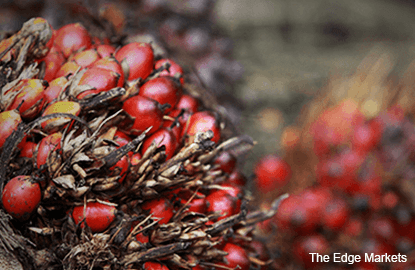
KUALA LUMPUR (June 20): The government has postponed the phased implementation of the B10 biodiesel programme (blending of 10% palm methyl ester with 90% petroleum diesel) for the transport sector by one month to July.
This follows a meeting held on Friday with the private sector, namely the Malaysian Automotive Association, the Japan Automobile Manufacturers Association and the Malaysian Automotive Institute.
However, the Plantation Industries and Commodities Ministry did not give a reason for the postponement.
“Currently, a number of automotive manufacturers, including Mercedes Benz, Scania, Peugeot, UD Truck and Volvo Truck, have indicated acceptance of B10,” the ministry said in a statement today.
The B7 programme has been implemented in the transport sector since December 2014, while the B10 standard has been in development in stages since 2013.
The ministry said it will continue to engage the stakeholders on compatibility of the B10 programme, including providing exemptions to petrol stations in order to address concerns. The petrol stations include those located in Cameron Highlands and Genting Highlands in Pahang, as well as Kundasang in Sabah will be allowed to continue supplying B7 programme, while those selling Euro 5 grade diesel will be allowed to retail the B7 blend.
The ministry said that Euro 5 diesel is currently available at over 100 petrol stations in the country, which provides the consumers with the choice of either B7 or B10 blends.
The ministry had earlier announced that the B10 programme for the transport sector and the B7 programme for the industrial sector, which covers the commercial and power generation sector, would be implemented progressively from June onwards.
Reuters said today that palm oil traders, plantation companies and analysts had earlier questioned the feasibility of the government's B10 programme, citing low crude oil prices and weak implementation policies as barriers to the mandate's effectiveness.
However, the ministry told Reuters that the biodiesel programme will help stabilise palm oil prices, and that the government will look for other strategies as well, to support prices, such as accelerating re-planting activities.
MIDF Amanah Investment Bank Bhd analyst Alan Lim had said in a report dated June 1 that both B7 and B10 programmes are expected to contribute to annual domestic consumption of crude palm oil (CPO) of 709,000 tonnes, as opposed to 500,000 tonnes.
He had also said the biodiesel programme is expected to keep total inventory at a manageable level of below 2.5 million tonnes, especially during the peak production month between September to November, which will lend support to CPO prices.
At the close today, the third month futures contract for CPO was down RM41 to RM2,409 per tonne.